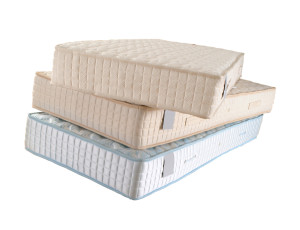The United States Court of Appeals for the Third Circuit recently ruled that the United States District Court for the District of New Jersey applied the wrong test to determine whether Sleepy’s LLC misclassified its delivery workers as independent contractors, rather than as employees. The case was decided under the New Jersey Wage Payment Law (“WPL”) and the New Jersey Wage and Hour Law (“WHL”).
The lawsuit was brought as a class action by Sam Hargrove, Andre Hall, and Marco Eusebio. They each worked for Sleep’s LLC as mattress delivery workers. They had signed Independent Driver Agreements (“IDAs”) which deemed them to be independent contractors rather than employees. Sleepy’s requires its delivery workers to sign similar agreements.
 The workers claimed Sleepy’s misclassified them and the company’s other mattress delivery workers as independent contractors, rather than employees, in violation of the WPL, the WHL, the Family Medical Leave Act (“FMLA”) and the Employee Retirement and Income Security Act (“ERISA”). For example, they claim Sleepy’s improperly withheld money from their wages in violation of the WPL, and failed to pay them overtime as required by the WHL.
The workers claimed Sleepy’s misclassified them and the company’s other mattress delivery workers as independent contractors, rather than employees, in violation of the WPL, the WHL, the Family Medical Leave Act (“FMLA”) and the Employee Retirement and Income Security Act (“ERISA”). For example, they claim Sleepy’s improperly withheld money from their wages in violation of the WPL, and failed to pay them overtime as required by the WHL.
In 2012, the District Court ruled that Sleepy’s had correctly treated the deliverers as independent contractors. Accordingly, it dismissed their case. The workers appealed.
On appeal, the Third Circuit recognized that the New Jersey Supreme Court had not determined which test a court should apply to determine whether an individual is an employee under the WPL or the WHL. Accordingly, it asked the state Supreme Court to answer that question.
Earlier this year, the New Jersey Supreme Court answered that question. It indicated that the “ABC” test should be used to determine if an individual is an employee or an independent contractor under both the WPL and the WHL. Under that test, a worker is an employee unless: (1) the company does not exercise control over him and does not have the ability to do so; (2) the services the worker provides either are outside the company’s usual business, or are performed outside any places of business where the company performs those services; and (3) the individual normally works in an independently established trade, occupation, profession or business. I discussed this test in a previous article: New Jersey Supreme Court Broadens Definition of “Employee” Under Wage and Hour Law.
Since the District Court applied a different test to determine whether the mattress deliverers were employees or independent contractors of Sleepy’s, in the Third Circuit’s May 12, 2015 opinion, the court remanded the case so the lower court can apply the ABC test.
 New Jersey Employment Lawyer Blog
New Jersey Employment Lawyer Blog

